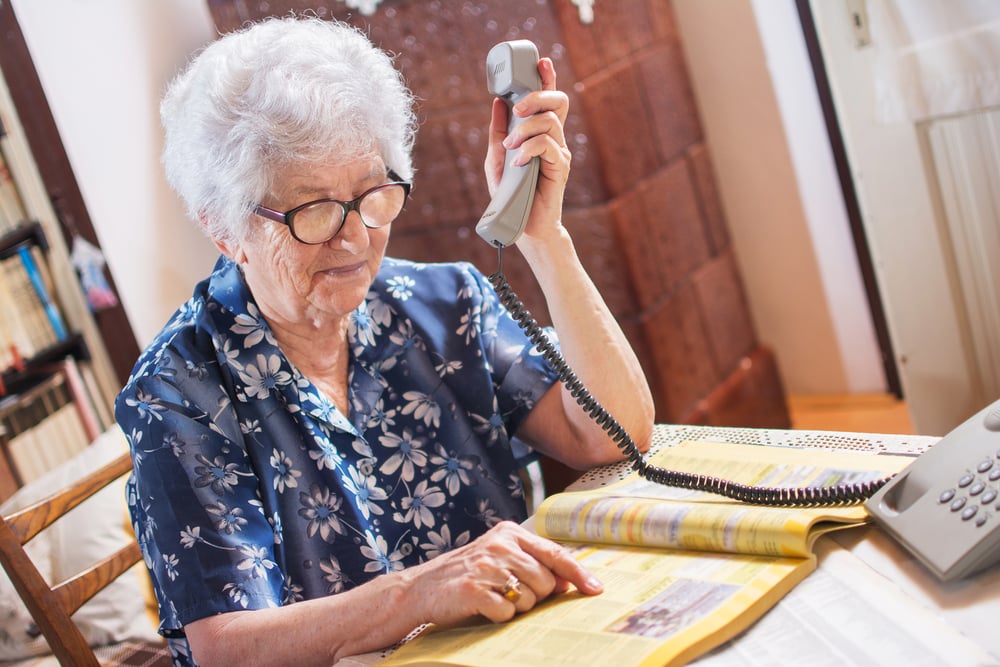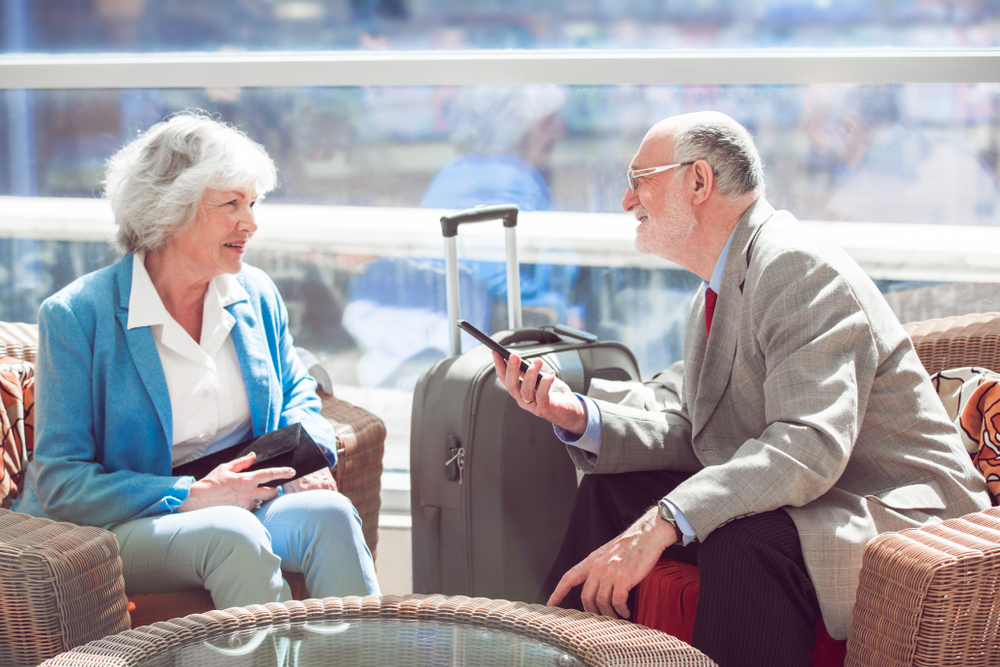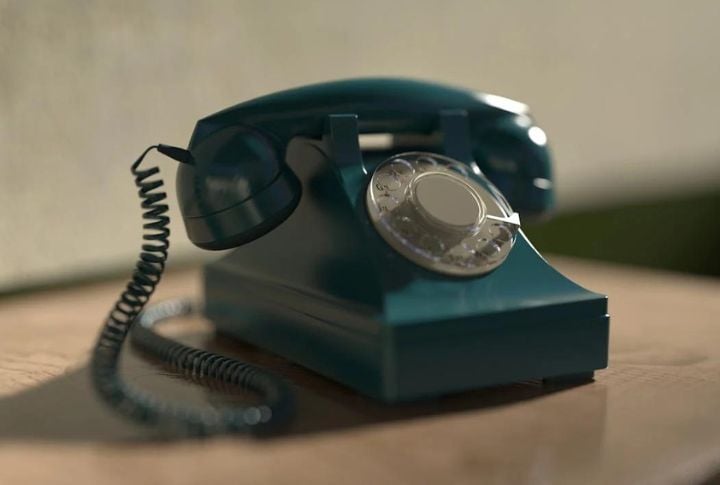Outdated social customs baby boomers still swear by.

Boomers grew up in a world where social etiquette was strict and widely followed. While some customs still make sense today, others have become relics of the past. Changing technology, shifting cultural norms, and new ways of communicating have rendered many of these once-mandatory behaviors unnecessary.
Yet, many boomers continue to abide by them, even as younger generations scratch their heads. Here are twelve social rules that boomers still follow religiously, despite their obsolescence.
1. Always answering the phone.

For boomers, ignoring a ringing phone is nearly unthinkable. They were raised to see phone calls as important and urgent, requiring immediate attention. Letting a call go to voicemail was considered rude or dismissive. This habit persists, even though most people today prefer texting or scheduling calls rather than answering unexpected ones.
Younger generations view unsolicited calls as intrusive and often avoid picking up unless necessary, according to Housely. With the rise of robocalls and spam, answering every call can be a frustrating experience. Voicemail, texting, and caller ID have made screening calls more practical, yet many boomers still treat the phone like it’s 1975.
2. Writing checks for everyday purchases.

For many boomers, writing a check is a deeply ingrained habit, especially for paying bills or making in-person purchases. It was once the standard method of payment, and balancing a checkbook was a necessary skill. However, in a world of digital banking, Venmo, and credit cards, checks are largely outdated.
Younger people rarely use checks, preferring the speed and convenience of tap-to-pay and mobile transactions. Many retailers no longer accept checks due to fraud risks and processing delays. Yet, some boomers still insist on writing checks at the grocery store, much to the frustration of those waiting in line.
3. Sending thank-you notes by mail.

Boomers were taught that a handwritten thank-you note was the gold standard of gratitude. Whether for a gift, dinner invitation, or favor, sending a formal note was expected. This practice was drilled into them as a sign of good manners, and many still adhere to it religiously.
Today, a text, email, or even a quick phone call is considered sufficient. The formality of handwritten notes has faded, except for special occasions like weddings, according to Upworthy . While expressing gratitude is always appreciated, most people no longer expect a physical card in the mail for small gestures.
4. Dressing up for travel.

Boomers remember a time when flying was a special occasion, requiring formal attire. Men wore suits, women wore dresses, and looking polished was part of the experience. Dressing up for a flight was seen as a sign of class and respect for the journey.
Today, comfort takes priority over formality. With long security lines, cramped seats, and unpredictable delays, most travelers opt for athleisure or casual wear. While boomers may still raise an eyebrow at those in sweatpants and hoodies at the airport, dressing up for travel is now a thing of the past.
5. Expecting a live person to answer customer service calls.

Boomers are used to calling a business and speaking with a human right away. They expect personalized service and can get frustrated by automated phone systems and chatbots. To them, pressing a dozen buttons before reaching an actual person feels impersonal and inefficient.
However, automation is the new norm, and companies use AI to handle simple inquiries. Younger consumers often prefer online chat, self-service portals, or email support rather than spending time on hold. The days of always getting a live representative on the first call are largely over.
6. Using cash for most purchases.

Carrying a wallet full of cash was once the norm, and many boomers still prefer paying with bills over digital transactions. They view cash as more secure, reliable, and tangible, making it easier to track spending.
Younger generations, however, rely heavily on credit cards, Apple Pay, and digital wallets. Many businesses are moving toward cashless systems, and some places no longer accept cash at all. While there’s still value in carrying some cash, insisting on using it for everything feels outdated.
7. RSVPing with a written reply.

Boomers take RSVPs seriously and often respond with a phone call or written reply. They were raised to see it as a matter of etiquette and respect. Ignoring an RSVP request was seen as rude, and failing to respond was unacceptable.
Today, most invitations come via email or social media, and a simple digital response is expected. Younger people rarely pick up the phone for RSVPs and may not even realize a formal reply is necessary. While boomers may still prefer a call or a handwritten note, the world has moved on to quicker methods.
8. Making small talk with strangers.

Boomers were raised in a culture where casual conversation with strangers was normal and even expected. Whether in line at the grocery store or sitting on a park bench, making friendly small talk was seen as a social skill.
Younger generations, especially those raised with smartphones, often prefer to keep to themselves. They may see unsolicited small talk as awkward or unnecessary. While polite conversation isn’t dead, the expectation that everyone should engage in it has largely faded.
9. Keeping a landline phone.

For boomers, having a landline was once essential. It was their primary connection to the world, and the idea of not having one still feels strange. Many continue to pay for landlines even though they primarily use their mobile phones.
Younger generations see landlines as redundant. With smartphones offering unlimited calling, texting, and internet access, keeping a separate home phone seems unnecessary. As fewer people answer calls from unknown numbers, the landline’s relevance has all but disappeared.
10. Addressing people formally.

Boomers were taught to use titles like “Mr.,” “Mrs.,” and “Miss” when addressing adults. They saw it as a sign of respect, especially for elders and authority figures. Calling someone by their first name without permission was once considered rude.
Today, most people prefer a more casual approach. In workplaces and social settings, using first names is the norm, regardless of age or status. While formal titles are still used in some professional settings, insisting on them in everyday conversation can feel outdated.
11. Expecting handwritten invitations for major events.

Boomers grew up receiving formal, printed invitations for weddings, anniversaries, and other big events. A mailed invitation was considered a thoughtful, respectful gesture, and e-vites were unheard of.
Nowadays, digital invitations via email or social media are the standard. They’re faster, cheaper, and more environmentally friendly. While some still appreciate the elegance of a paper invite, the expectation that every major event requires one is fading fast.
12. Calling instead of texting.

For many boomers, calling is the default method of communication. They see phone conversations as more personal and meaningful than a text exchange. Picking up the phone for even simple messages is second nature to them.
Younger people, however, prefer texting for its convenience and efficiency. Phone calls can feel intrusive, especially when a text would suffice. While some situations still call for a voice conversation, calling someone out of the blue without warning is no longer the norm.
